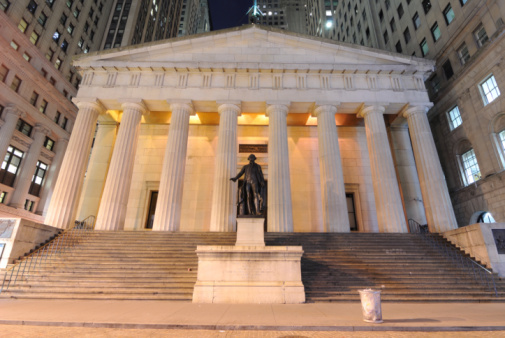
The Regulatory Review features the remarks of Judge Jed S. Rakoff, delivered at the Institute for Law and Economics’s Distinguished Jurist Lecture.
The financial crisis erupted in 2008 and shook the United States and the world to their cores. At the time, confidence in the global banking system collapsed, and the world economy entered a recession. The consequences of the crisis continue to linger more than five years later. A recent employment report announced that almost 4 million Americans have been out of work for more than six months. Although that troubling number has declined slightly since the depths of the Great Recession, it is still higher than at any other point in the last sixty years.
The effects of the Great Recession are clear, but the causes of the collapse and the proper responses to it remain disputed. Debates over the proper role of financial regulation shaped the presidential elections of 2008 and 2012, and they continue today. This discussion, between politicians, regulators, scholars, and regular citizens, is crucial to understanding the lingering crisis and strengthening both banks and the financial regulatory system for the future.
Now The Regulatory Review features Judge Jed S. Rakoff’s contribution to our ongoing, national debate. Judge Rakoff presents, in an articulate and forceful manner, one question that has been asked repeatedly since the financial crisis of 2008: Why have no high-ranking executives faced criminal charges for their involvement in the collapse of the American banking system?
Judge Rakoff is currently a federal judge for the United States District Court for the Southern District of New York. He joined the court in 1996 after being nominated by President William Clinton and assumed senior status on December 31, 2010. Prior to taking the bench, Judge Rakoff was an Assistant U.S. Attorney for the U.S. Attorney’s Office in the Southern District of New York, and eventually served as Chief Prosecutor of the Business and Securities Fraud Prosecutions Unit. Judge Rakoff also previously practiced as a white-collar criminal defense attorney, and is currently an adjunct professor at the Columbia Law School.
Judge Rakoff examines the dearth of criminal prosecutions following the financial crisis, and suggests that the cause of the pattern can be tied to troubling trends in federal regulatory and prosecution policies. This essay, which we publish in four parts, draws on Judge Rakoff’s Distinguished Jurist Lecture hosted by the Institute for Law & Economics and delivered at Penn Law on November 19, 2013.
Who is to Blame for the Great Recession?
January 13, 2014 | Hon Jed S. Rakoff
Five years have passed since the onset of what is sometimes called the Great Recession. While the economy has slowly improved, there are still millions of Americans leading lives of quiet desperation: without jobs, without resources, without hope.
The Department of Justice and the Prosecution of Fraud
January 14, 2014 | Hon Jed S. Rakoff
While officials of the Department of Justice have been more circumspect in describing the roots of the financial crisis than have the various commissions of inquiry and other government agencies, I have seen nothing to indicate their disagreement with the widespread conclusion that fraud at every level permeated the bubble in mortgage-backed securities.
Potential Reasons for the Dearth of Prosecutions
January 15, 2014 | Hon Jed S. Rakoff
Without multiplying examples further, my point is that the Department of Justice has never taken the position that all the top executives involved in the events leading up to the financial crisis were innocent, but rather has offered one or another excuse for not criminally prosecuting them – excuses that, on inspection, appear unconvincing. So, you might ask, what’s really going on here?
The Shift to Prosecuting Companies Instead of Individuals
January 16, 2014 | Hon Jed S. Rakoff
The final factor I would mention is both the most subtle and the most systemic of the three, and arguably the most important, and it is the shift that has occurred over the past 30 years or more from focusing on prosecuting high-level individuals to focusing on prosecuting companies and other institutions.
Click here for the combined text of all four parts of this series, Why Have No High-level Executives Been Prosecuted?, based on Judge Jed S. Rakoff’s 2013 Distinguished Jurist Lecture delivered at the University of Pennsylvania Law School. Judge Rakoff published these remarks in the January 9, 2014 issue of New York Review of Books, and his essay is reprinted here with permission of that publisher.



